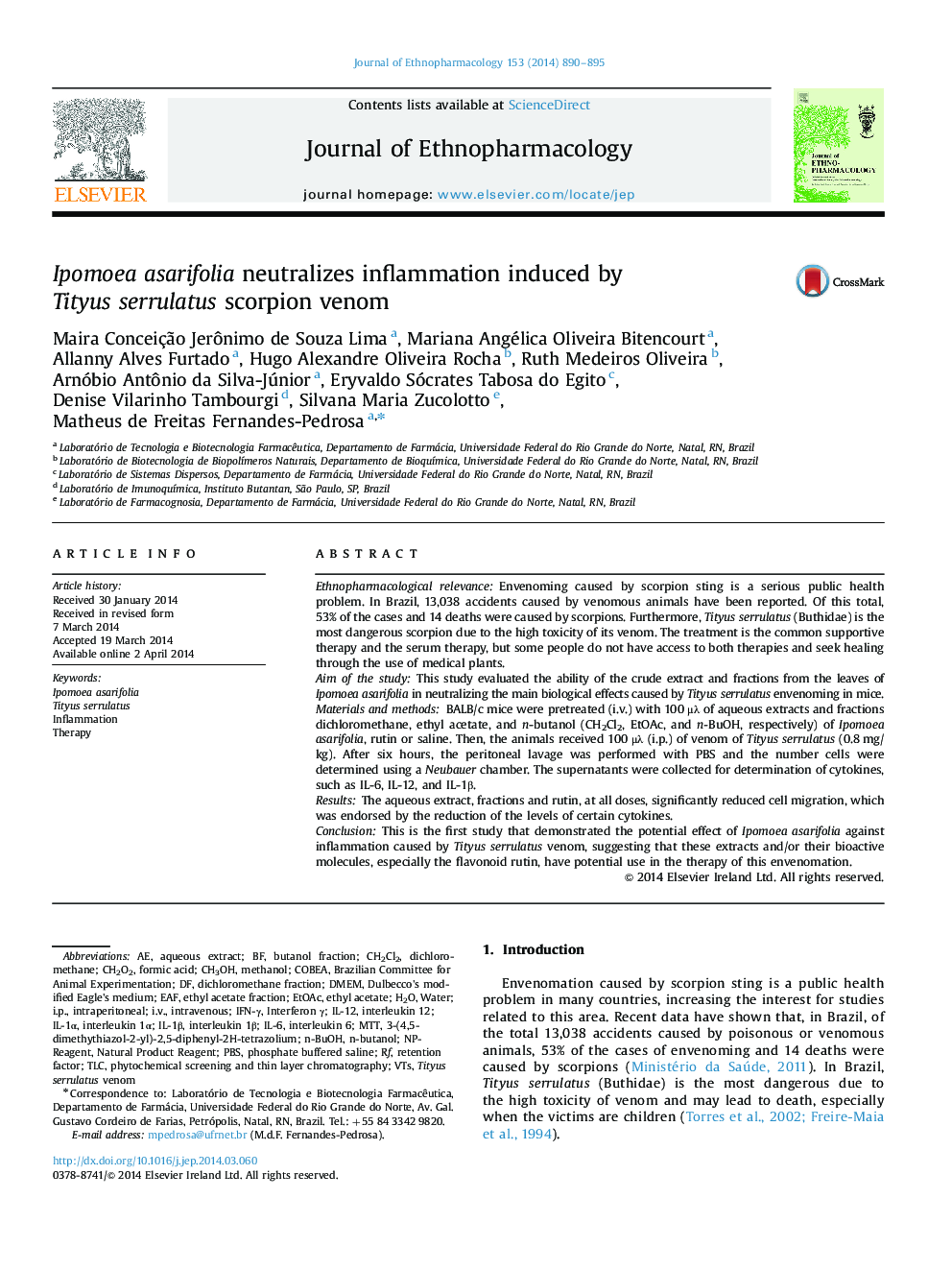| کد مقاله | کد نشریه | سال انتشار | مقاله انگلیسی | نسخه تمام متن |
|---|---|---|---|---|
| 2545119 | 1123934 | 2014 | 6 صفحه PDF | دانلود رایگان |

Ethnopharmacological relevanceEnvenoming caused by scorpion sting is a serious public health problem. In Brazil, 13,038 accidents caused by venomous animals have been reported. Of this total, 53% of the cases and 14 deaths were caused by scorpions. Furthermore, Tityus serrulatus (Buthidae) is the most dangerous scorpion due to the high toxicity of its venom. The treatment is the common supportive therapy and the serum therapy, but some people do not have access to both therapies and seek healing through the use of medical plants.Aim of the studyThis study evaluated the ability of the crude extract and fractions from the leaves of Ipomoea asarifolia in neutralizing the main biological effects caused by Tityus serrulatus envenoming in mice.Materials and methodsBALB/c mice were pretreated (i.v.) with 100 μλ of aqueous extracts and fractions dichloromethane, ethyl acetate, and n-butanol (CH2Cl2, EtOAc, and n-BuOH, respectively) of Ipomoea asarifolia, rutin or saline. Then, the animals received 100 μλ (i.p.) of venom of Tityus serrulatus (0.8 mg/kg). After six hours, the peritoneal lavage was performed with PBS and the number cells were determined using a Neubauer chamber. The supernatants were collected for determination of cytokines, such as IL-6, IL-12, and IL-1β.ResultsThe aqueous extract, fractions and rutin, at all doses, significantly reduced cell migration, which was endorsed by the reduction of the levels of certain cytokines.ConclusionThis is the first study that demonstrated the potential effect of Ipomoea asarifolia against inflammation caused by Tityus serrulatus venom, suggesting that these extracts and/or their bioactive molecules, especially the flavonoid rutin, have potential use in the therapy of this envenomation.
Aqueous extracts and fractions of Ipomoea asarifolia and rutin can counteract the inflammatory effects caused by Tityus serrulatus scorpion venom in mice.Figure optionsDownload high-quality image (161 K)Download as PowerPoint slide
Journal: Journal of Ethnopharmacology - Volume 153, Issue 3, 14 May 2014, Pages 890–895